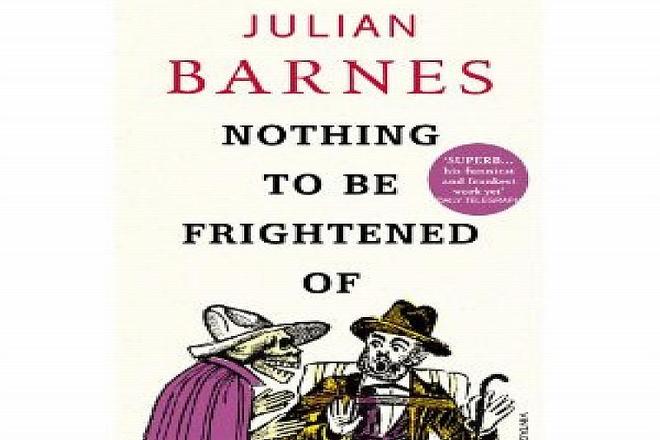THE READER of the English edition of Julian Barnes's Nothing To Be Frightened Of is immediately presented with what seems to be a massive contradiction. Beneath an endorsement from The Daily Telegraph that this is Barnes's “funniest and frankest work to date”, a cover illustration depicts a cloaked skeleton visiting an unsuspecting gentleman and scaring him to death. Various other blurbs describe the book as a dissection of the “inevitability of death”, a “meditation on mortality and the fear of death”, “an extended reflection on the fear of death” and a “bible of elegant despair”. Funny? Are you sure?
Sticklers for accurate marketing should not be outraged, however. This is without question a book about death but The Daily Telegraph also has it right. At least for the opening few sections, Nothing To Be Frightened Of is an often hilarious memoir of a child growing up in a typically constrained British household of the 1950s, peppered with endearing and unique family anecdotes. But it is not an autobiography in the wider sense because Barnes’s vibrant and eclectic kin are soon employed primarily as filters through which many common attitudes towards the central subject are channelled – and it turns out they’re ideal for the task.
Barnes’s father takes British stoicism to a new level, surviving Hodgkin’s disease without even knowing he ever had it, while his mother (who has nothing but scorn for her husband) is an atheistic, unsentimental matriarch, who wished for her arm to be amputated after suffering a stroke. His brother James is a philosopher specialising in Aristotle, and Barnes remembers his grandfather as never “teaching (or leaving) me anything, though I was once allowed to watch while he killed a chicken in the garden shed”.
Living among these characters no doubt aided Barnes as he became one of Britain’s best contemporary novelists, but he could never shake an obsession with the nature of mortality, even as his reading and his circle of friends widened. Mercifully, he was not alone and encountered a similar morbid fascination in the works of numerous literary greats, including the French diarist Jules Reynard. Barnes’s book is at least part homage to the thinker he describes as “one of my dead, French, non-blood relatives” but it is also much more than that.
While paying its dues to Reynard’s work, Nothing To Be Frightened Of is stuffed with thoughts, arguments, counter-arguments, meditations, debunkings and questions of its own. Barnes throws his net wide to balance instinctive reactions to the subject of death with those of philosophical heavyweights, and he has seemingly heard every proverb, poem and bon mot on the theme. He is prepared too to analyse their claims. It really is a comprehensive effort, examining the implications of an afterlife, dismantling arguments of legacy and the arrogant assumption of human primacy on earth. Despite such weighty issues, Barnes keeps the arguments zipping along, and he is wonderfully adept at identifying and encapsulating illogicality and sophism.
“The Anglo-Saxon poet compared human life to a bird flying from darkness into a brightly lit banqueting hall, and then flying out into the dark on the farther side,” Barnes writes. “It’s pretty enough, but the pedantic side of me keeps wanting to point out that any right-thinking bird flying into a warm banqueting hall would perch on the rafters as long as it bloody well could.”
Although Barnes humbly defers to his brother as the professional philosopher, Nothing To Be Frightened Of is itself a philosophical work, inasmuch as it addresses mankind’s single most reasoned over preoccupation. The tone, though, is notably un-academic (or, perhaps, invisibly academic) and his examples often return to the family, whose earthy pragmatism sounds like it has been imagined by Alan Bennett.
Nothing To Be Frightened Of, which was originally released in 2008, has recently been translated into Czech, and I hope that most of Barnes’s wordplay, and his deft comic touch, survives the transition. The title itself is one such example. Quoting from one of his own diaries, Barnes notes: “People say of death, ‘There’s nothing to be frightened of.’ They say it quickly, casually. Now let’s say it again, slowly, with re-emphasis: ‘There’s NOTHING’ to be frightened of.’”
But for a book about nothingness, this is remarkably vibrant and alive.


